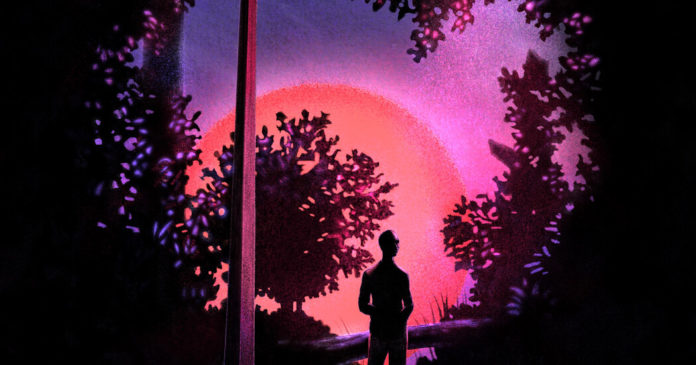
He was wildly ambitious and competitive. He loved to cook and could have been a chef. He loved cars. He loved his family, passionately. He was loud and gregarious and arrogant and generous. He was annoying and stubborn. We argued, a lot, and still he was my biggest fan. He was my mom’s best friend, my dad’s best friend. He was our brother’s best friend. At his funeral, we met a dozen people who introduced themselves as Joel’s best friend. He was my best friend.
The world was a larger, better place with Joel in it, but even he could not escape the realities with which all Black men must contend — the realities that limited possibilities for Moses and Kitch in “Pass Over.” Whenever Joel moved to a new city, he introduced himself and his son to the local police. “This is my child; take a good look at him,” he would say, trying to ensure that the officers would see my nephew, this young Black man, as a human being rather than a target. He told them the makes and models of the cars that he and his son drove.
It is not likely that these gestures could prevent the tragedies he feared most — tragedies that happen daily in America, even if they don’t make headlines — but I think my brother needed to feel a semblance of control in a world where so much was beyond his control.
He never made himself smaller in the ways the world expected him to. But he needed to believe that he and his child were not trapped in an impossible place.
There is no intermission in “Pass Over,” which means there is no respite from the relentless, sometimes frenetic dialogue, the actors bounding back and forth across the stage, saying “nigga” in a hundred different ways to express a hundred different emotions. It is fitting that we, the audience, are held in place for 95 minutes, much in the way that Moses and Kitch are held in their own unforgiving place.
Every so often, the characters freeze, trembling in fear, and we know why, all too well. They are being confronted by the fragility of their Black lives and the existential terror that is always hounding them.
“Pass Over” is absurdist, but so are the conditions of this world — the conditions my brother Joel faced, the conditions far too many of us face. In the days since I saw “Pass Over,” I have been thinking about the play’s power, how it reached inside me and opened up a well of grief that continues to deepen. The show reminded me that even when I feel there is nothing more any of us can say about our collective grief for the fragility of Black life, there can be a way forward. We can also celebrate our strength and grace and uncanny wisdom.








